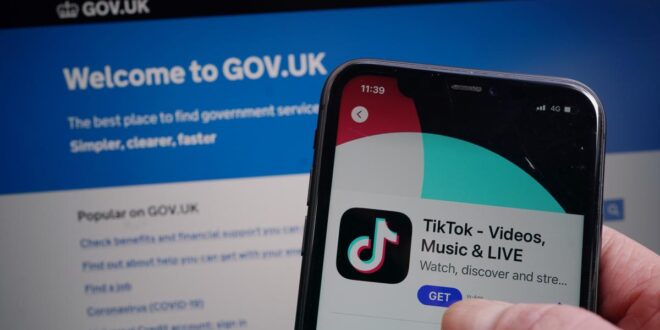In line with the United States and the European Union, the UK announced a security ban on government devices for the Chinese-owned video app TikTok.
“We will do so with immediate effect,” Cabinet Office minister Oliver Dowden told parliament.
Because they are concerned that Chinese authorities may misuse or use the app owned by the company Bytedance, more and more strict measures are being taken by Western authorities.
According to Oliver Dowden, experts have evaluated the risks associated with using third-party apps about private information from the government.
Government devices will only be able to access apps that have been pre-approved as part of the measures.
Government devices will only be able to access apps that have been pre-approved as part of the measures.
The “government corporate devices” used by ministers and ministries will be subject to the ban; however, personal devices and the general public will be exempt.
Dowden called the action “proportionate” and advised users to proceed with “caution” when downloading apps.
ByteDance has long insisted that Beijing neither receives nor receives any data from it that is stored in China.
US government representatives have stated that TikTok would avoid a more extended national ban if it parted ways with ByteDance.
On Thursday, Beijing’s foreign ministry urged Washington to stop “unreasonably suppressing” TikTok, which has more than a billion users worldwide.
According to spokesperson Wang Wenbin, the US has not yet provided evidence that TikTok threatens the country’s national security.
In an update to its defense and foreign policy, the UK this week provided plans to address what it described as the “epoch-defining challenge” posed by China.
The UK has been looking for new markets and influence in Asia since it left the European Union, partly to compete with China.
One of its goals is to strengthen security organizations to make critical infrastructure more resilient.
Additionally, it has stopped Chinese companies from acquiring UK electronics companies and barred China General Nuclear from participating in constructing a new power plant.
Rishi Sunak, the current prime minister, pledged to be tough on China when he unsuccessfully ran to succeed Boris Johnson in July, labeling the Asian superpower the “number one threat” to national and international security.
He alleged that China was “stealing our technology and infiltrating our universities” at the time.
 India One News
India One News





